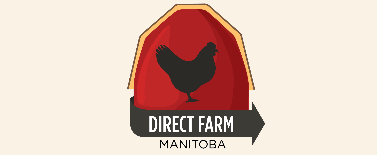It is Better to Thrive than to Grow
 Tuesday, August 2, 2022 at 10:52AM
Tuesday, August 2, 2022 at 10:52AM 
by George Klassen
I have long wondered about several things:
-
The Gross Domestic Product (GDP) as our main economic indicator,
-
The expectation of continuous growth (not possible on a limited planet),
-
The astounding inequality in wealth, and
-
The ability of banks to create money by making loans.
I was delighted to read Kate Raworth’s book, Doughnut Economics: Seven Ways to Think Like a 21st-Century Economist. The book has nothing to do with edible doughnuts. Instead, the shape of a doughnut is a useful illustration of a zone good for everyone (represented by the doughnut itself), with disagreeable or dangerous zones in the doughnut hole and the area outside of the doughnut.
Kate Raworth describes her struggles with traditional economics as a young economics student. She addresses most of the things I have wondered about, and introduces many other economy-related things that need improving. She has some great ideas as to what improved economics could do for us.
For example, Raworth observes that “as of 2015, the world’s richest 1 per cent now own more wealth than all the other 99 percent put together”. She suggests that our economy should be distributive by design, allowing the 99 percent to put to good use the wealth that is presently not available to them.
GDP, the total monetary value of goods and services, is an antiquated measure still widely used in describing national success and in determining policy. However, human well-being includes much more than people’s income or spending. Alternative suggested indices include the Human Development Index (developed by the United Nations), the Happy Planet Index, the Inclusive Wealth Index, and the Social Progress Index.
Raworth’s book has many more observations and insights. In a nutshell, Raworth states that, “We have an economy that needs to grow, whether or not it makes us thrive. We need an economy that makes us thrive, whether or not it grows.”
A TED talk with Kate Raworth summarizes the book well.
I was reminded of Raworth’s proposals recently in an article by a Canadian university professor dealing with the costs of fully addressing climate change. He quotes Nobel Prize-winning (2018) William Norhaus’ work showing that “aggressive emission reductions were costlier than doing nothing and that the optimal course of action would be to reduce emissions to only slightly below the business-as-usual case.” The professor also wrote that, “Most economists … view the climate-change cost of fossil fuel use as a relatively small side effect that should not stand in the way of continued enjoyment of the global benefits of inexpensive and reliable energy.”
In her book, Raworth mentions this kind of approach as an example of how traditional economics do not serve us well. In her view, which I agree with, the climate crisis, far from being a “relatively small side effect”, demonstrates real limits to our lavish and consumptive lifestyle that we should recognize. There are boundaries that we dare not cross, and within which we can develop very satisfying lifestyles.
I would prefer to have our lives guided by our well-being (in the broadest sense), rather than by GDP.
Several jurisdictions are trying out Raworth’s ideas, including the City of Amsterdam (Netherlands). It will be interesting to see how that works out.


